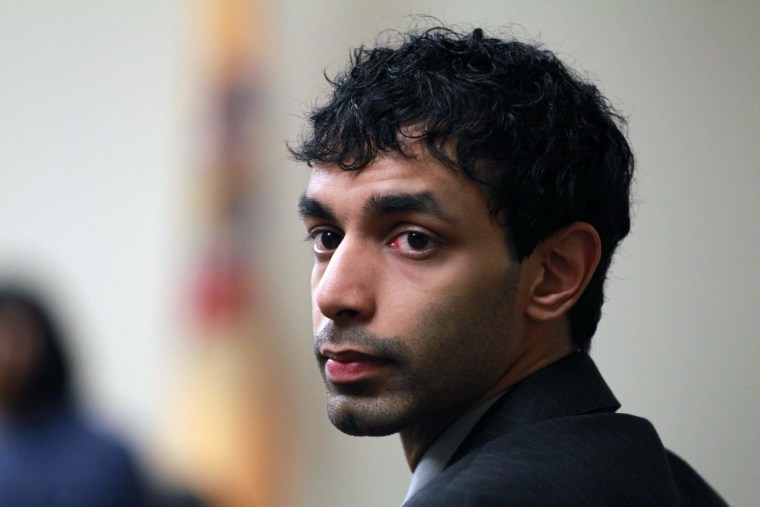The New Jersey bias-intimidation law that played a crucial part in the conviction of Dharun Ravi in 2012 has been ruled unconstitutional by the New Jersey Supreme Court.
Ravi's Rutgers University roommate, Tyler Clementi, committed suicide after discovering that Ravi used a webcam to spy on Clementi's romantic encounter with a man, and encouraged others to watch as well.
The new ruling opens the door to the possibility that Ravi’s conviction on 15 counts of privacy invasion and bias intimidation may be thrown out because so much of the evidence focused on Clementi’s perception of the events as well as his suicide.
The New Jersey Supreme Court closely examined the third clause of the state’s bias intimidation law, which takes into account what the victim believed about the defendant’s motivation in New Jersey v Pomianek. The American Civil Liberties Union (ACLU) of New Jersey, The Association of Criminal Defense Lawyers of New Jersey, and The Rutherford Institute all submitted amicus curiae (friend of the court) briefs.
“Unlike any other bias-crime statute in the country, N.J.S.A. 2C:16-1(a)(3) focuses on the victim’s, not the defendant’s, state of mind,” wrote Justice Albin in his opinion. “The defendant’s fate depends not on whether bias was the purpose for the commission of the crime but on whether the victim ‘reasonably believed’ that was the purpose.”
Some of the scenarios that might follow include that the victim could be mistaken about the defendant’s perceived bias, the defendant could be unaware that the victim would interpret his actions to be biased, and the defendant would have no way of knowing when he was crossing the line to committing a criminal act.
Throughout his 2012 trial, Ravi insisted that he was not biased against homosexuals. He even turned down a plea deal that would have avoided jail time because he insisted he did not commit a hate crime.
Ravi was sentenced to thirty days in jail, of which he served twenty days. His attorneys told Desi Talk that they would be filing a new brief in their appeal in April.
